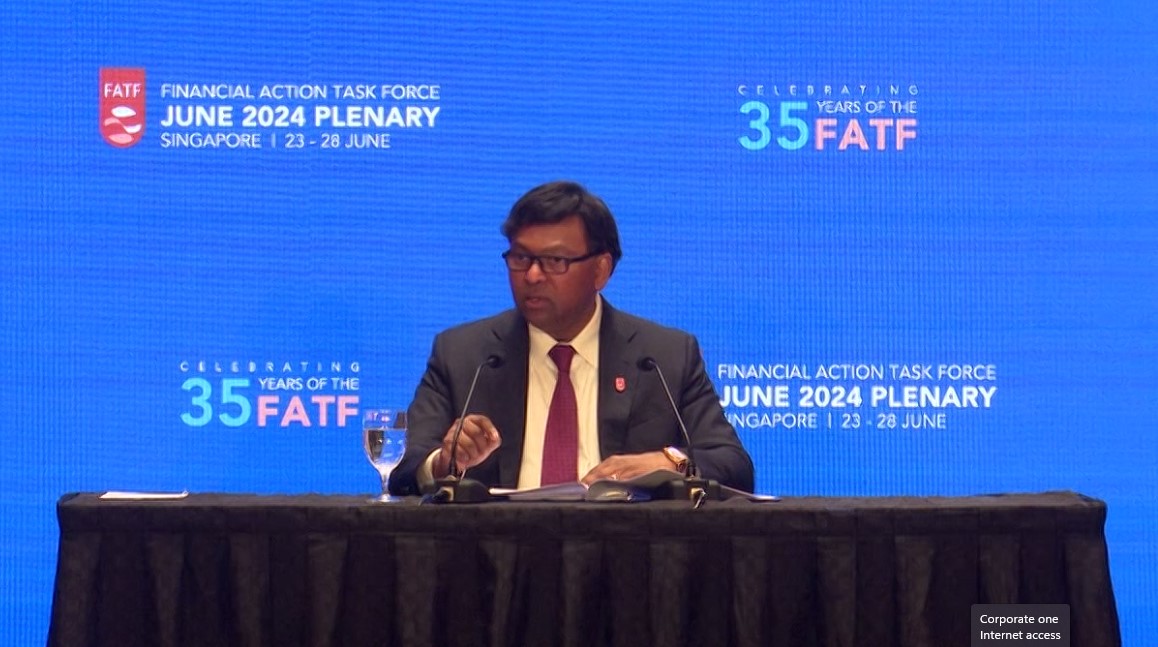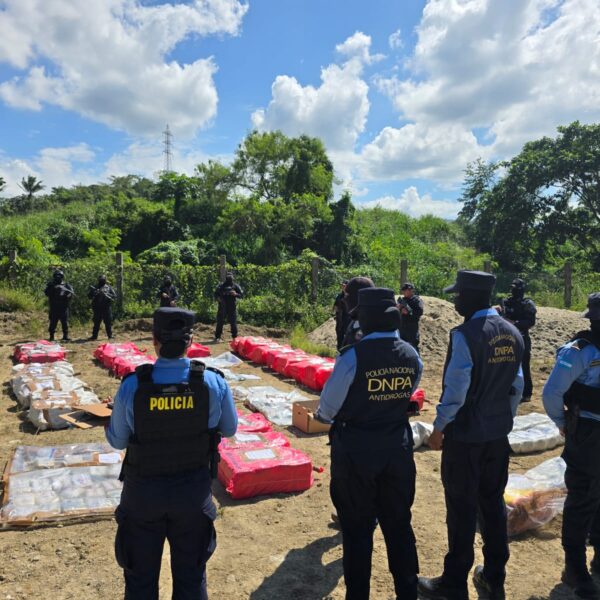
T. Raja Kumar (Image Source: FATF)
|
Getting your Trinity Audio player ready...
|
At the conclusion of the sixth and final Plenary of the Financial Action Task Force (FATF) under the Presidency of T. Raja Kumar of Singapore today, June 28, 2024, the FATF announced the removal of Jamaica and Turkey from its list of jurisdictions subject to increased monitoring (otherwise known as the “grey list”).
Regarding Jamaica, the FATF plenary said:
The FATF welcomes Jamaica’s significant progress in improving its AML/CFT regime.
Jamaica strengthened the effectiveness of its AML/CFT regime to meet the commitments in its action plan regarding the strategic deficiencies that the FATF identified in February 2020 by:
(1) developing a more comprehensive understanding of its ML/TF risk;
(2) including all FIs and DNFBPs in the AML/CFT regime and implementing adequate risk based supervision in all sectors;
(3) taking appropriate measures to prevent legal persons and arrangements from being misused for criminal purposes, and ensuring that accurate and up to date basic and beneficial ownership information is available on a timely basis;
(4) taking proper measures to increase ML investigations and prosecutions, in line with the country’s risk profile, and increasing the use of financial intelligence in ML investigations;
(5) implementing targeted financial sanctions for terrorist financing without delay; and
(6) implementing a risk based approach for supervision of its NPO sector to prevent abuse for TF purposes.
Jamaica is therefore no longer subject to the FATF’s increased monitoring process.
Jamaica should continue to work with CFATF to sustain its improvements in its AML/CFT system.
While Jamaica was removed from the Grey List, the FATF Plenary confirmed that Venezuela, another country in the region, was added to it. Monaco is also a new entrant on this list.
In relation to the blacklist, the FATF reconfirmed that the Democratic People’s Republic of Korea (DPRK) “continued failure to address the significant deficiencies in its anti-money laundering and combating the financing of terrorism (AML/CFT) regime and the serious threats posed by the DPRK’s illicit activities related to the proliferation of weapons of mass destruction (WMDs) and its financing.”
Iran is also on the blacklist.
In addition to these announcements, the FATF Plenary noted that the criteria for grey and black listing have been revised.
Regarding this, the FATF Plenary said:
FATF members achieved a key strategic milestone by approving revised criteria for prioritising countries for its International Cooperation Review Group (ICRG) review process for countries with strategic AML/CFT deficiencies that present a risk to the international financial system (i.e., FATF’s grey or black listing), which will be applied to the next round of assessment.
This updated prioritisation criteria is one of several new measures designed to ensure that the FATF’s listing process continues to be risk-based, fair, transparent, and cognisant of the capacity challenges least developed countries face.
The FATF Plenary added:
Members agreed how countries will be assessed for their compliance with the recently revised FATF Standards on asset recovery and related international cooperation, which were adopted in October 2023.
Going forward, each country will need to demonstrate that, among other measures, they are prioritising asset recovery; competent authorities are identifying and tracing criminal property; confiscation orders are obtained and enforced to deprive criminals of the proceeds of crime; and that they are providing constructive and timely international cooperation.







